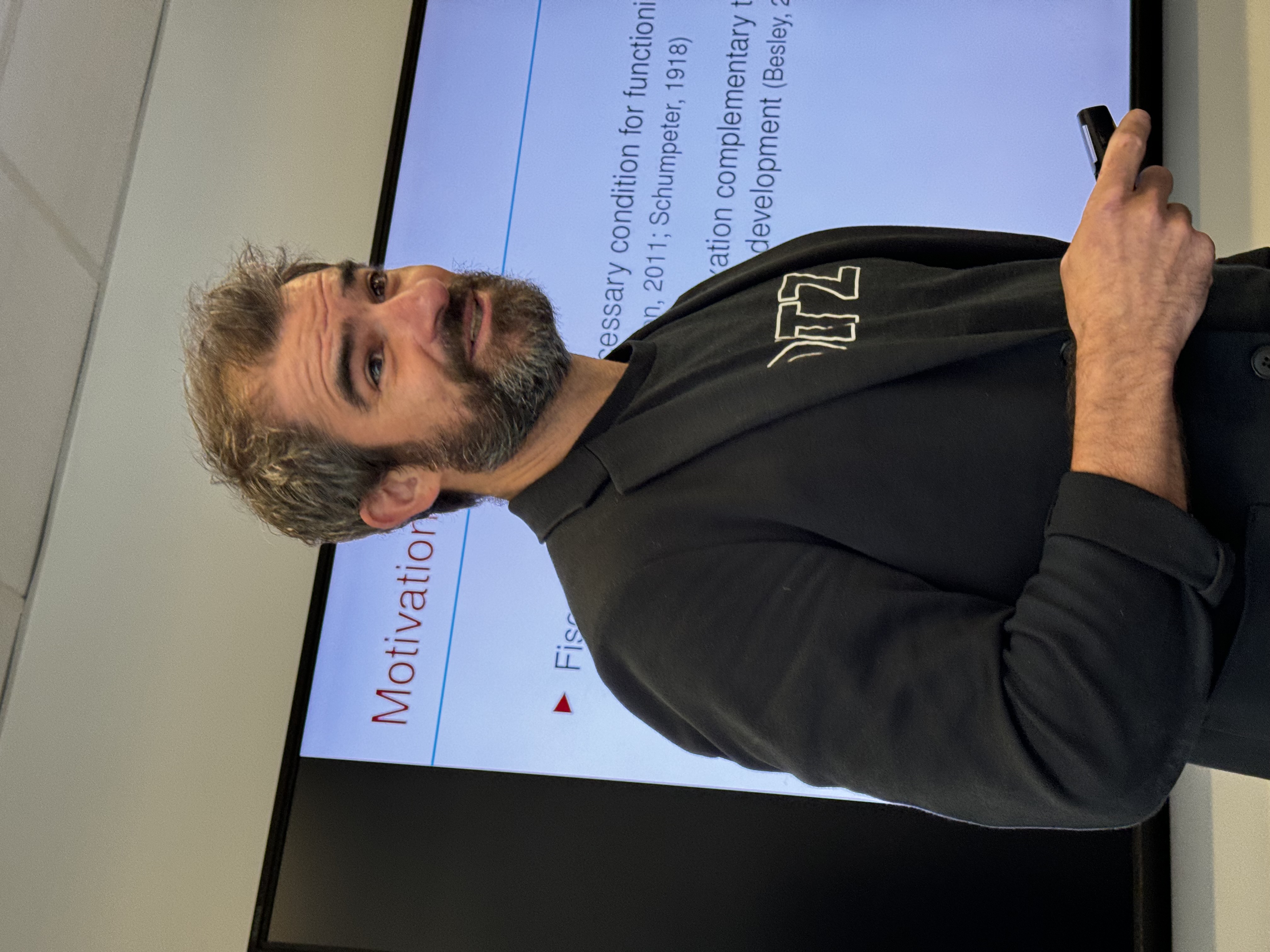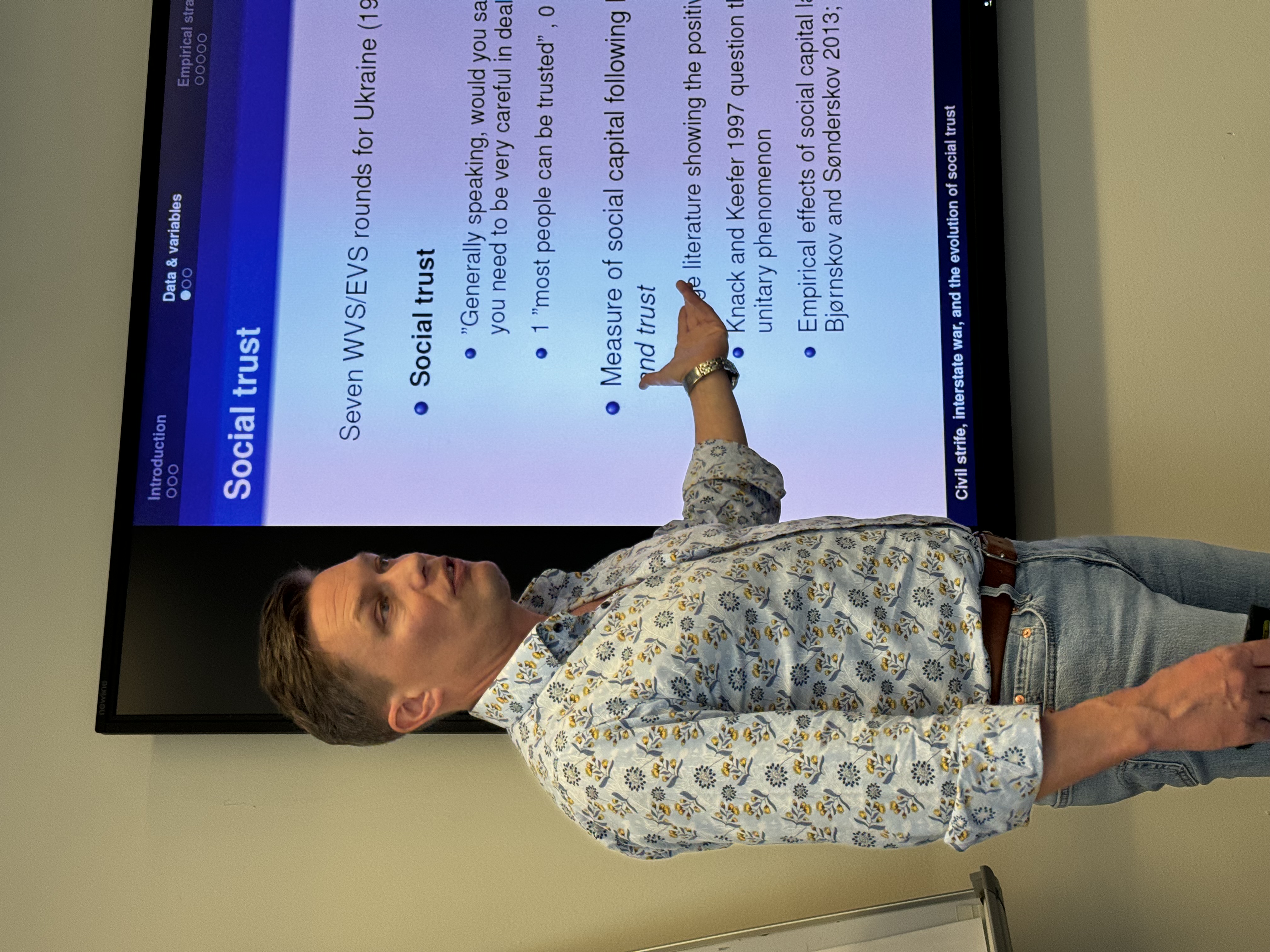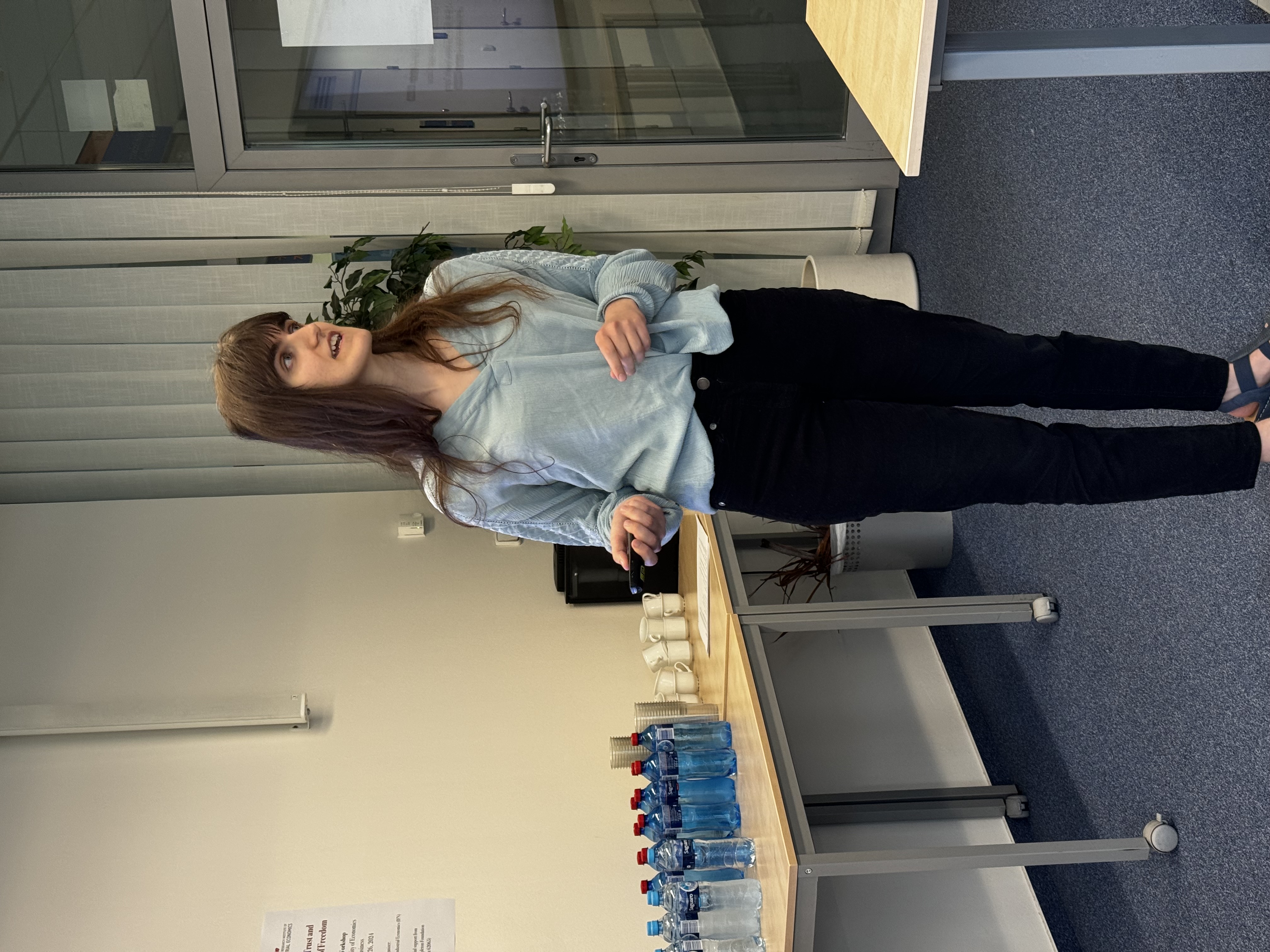Report from the Research Workshop “Cultures of Trust and Institutions of Freedom”
At the end of May 2024, 14 scholars from different disciplines and countries came together in Prague to present and discuss work on institutions and culture. The goal of the workshop was to provide help for improving this work and to think seriously about how to extend the research frontier, but also to create deepened social relations among scholars.
As part of the research project Cultures of Trust and Institutions of Freedom, its two researchers, Niclas Berggren and Christian Bjørnskov, organized a research workshop at the Prague University of Economics and Business (where Niclas Berggren has a part-time position in addition to his position at IFN). The workshop took place from 23–26 May 2024. Fourteen international scholars participated by presenting papers on culture and institutions and by discussing ways of extending this research field. The web page of the workshop, which includes the participants and program, can be accessed here.

Poster in the meeting room
The research project of which the workshop was a part is generously financed by grant 62065 from the John Templeton Foundation. It aims at analyzing how institutions of economic freedom can contribute to a society of free, responsible, and equal individuals, and how cultures of trust can emerge and grow. A representative of the Foundation, Greg Wolcott, attended the workshop and contributed throughout, both by participating in the research discussions and by introducing the Foundation.


Some of the workshop participants in the meeting room
This report offers a brief summary of the talks of the workshop, in the alphabetical order of the presenters, to share the insights of the new research that was presented to anyone interested in institutions and culture. However, note that all presentations were preliminary and that the underlying work is subject to revision. If there is an interest in some paper, we recommend getting in touch with the presenting author to get the latest version. Finally, note that the opinions expressed are those of the authors and do not necessarily reflect the views of the John Templeton Foundation.
The research presented at the workshop

Does capitalism disfavor women? Evidence from life satisfaction
Niclas Berggren
Some feminist scholars claim that capitalism undermines the quality of life of women. This study investigates the claim using the Economic Freedom of the World index as an indicator of capitalism, relating it to the life satisfaction of women and men. The results indicate no differences between the genders. Thus, the results imply that capitalism does not disfavor women relative to men in terms of how satisfied people are with their lives.

Government intervention and long-run growth: An ideologically moderated association?
Christian Bjørnskov
Previous studies show a solid, positive relationship between economic freedom and economic growth. However, it might be that this effect differs depending on the ideological profile of governments. Taking that into account, this study finds that left-wing governments see a positive association between a smaller government and growth and between more regulatory freedom and growth, while the association becomes weaker as the ideology of the government goes in a right-ward direction and turns insignificant for clearly right-wing governments.

Facing the populists: The effect of populist challengers on mainstream parties' welfare state positions
Andrea Celico
The study looks at the effect of populists' electoral success on European mainstream parties' positions about the economic dimension and the social inclusiveness of the welfare state. The results show after competing with a populist party, mainstream parties shift their positions in favor of a smaller and more exclusionary welfare state.

From enlightenment to cameralism: Tax morale and fiscal capacity as imperial legacy
Michael Dorsch
The study argues that historical reforms to the fiscal state can have a lasting impact on voluntary tax compliance and fiscal capacity development. It offers support for the argument by examining the effect of historical Habsburg imperial rule on the current propensity to avoid taxation in contemporary northern Italy. Tax avoidance is lower today among respondents from the formerly Habsburg side of the long-gone imperial border.

Economic freedom and varieties of peace
Jerg Gutmann
The research question is whether there is empirical evidence for "capitalist peace". By looking at the economic freedom levels of pairs of countries and a more detailed measure of peace than previous studies, the study finds that peace is indeed more likely between two countries with high economic freedom, while there is no significant relationship when only one country or no country has high economic freedom. There is no support for "democratic peace", using the same methodology

Towards a unified framework of institutions, entrepreneurship and economic growth
Marek Hudík
The research question is: What are the mechanisms through which institutions and entrepreneurial activities interact and affect economic outcomes? The answer is provided by combining Baumol (1990) (allocation of entrepreneurial talent) and Acemoglu & Robinson (2012) (extractive activities) into one framework. This provides a novel theoretical extension offering a better understanding of barriers to growth.

Preparing kids for capitalism: The effect of German reunification on the intergenerational transmission of preferences
Mariko Klasing
This paper builds a model of preference formation that incorporates genetic, passive and active transmission channels. The question is which channels play a role in transmitting risk attitudes from parents to children. Using data obtained in connection with German reunification, the results offer strong support for genetic and active transmission channels and little support for a passive (specifically, state-indoctrination) channel.

What can Popper, Hayek, and Gaus teach us about trust?
Otto Lehto
The argument concerns the challenge of how to establish and maintain trust in the Open Society and the role a welfare state might play. In particular, universal basic income (UBI) is examined from such a perspective. Although the evidence remains inconclusive, based on a careful reassessment of the combined empirical and philosophical justifications, it is concluded that an unconditional UBI may indeed be equally or more justifiable (even to some critics of the welfare state) than its alternatives.

Trust in political class and voting for populists
Jacek Lewkowicz
The study aims to shed light on the validity of the available measures of political populism and the stability of results obtained in empirical research, using different databases and testing the robustness of existing results to small changes in the classification of political parties as populist or not. The results show that the choice of indicator of populism matters for the empirical results, but trust measures are relatively robust and show a negative relationship to voting for populist parties.

The causal impact of electoral rules on corruption
Pierre-Guillaume Méon
This paper builds on the preceding literature on how electoral systems influence corruption. However, previous studies have been correlational. This study uses within-country data on French municipalities, exploiting a discontinuity in the French voting system in local elections to implement a regression discontinuity design to establish causal results. The study finds that the move from an individual majority system to a proportional list system increases corruption.

Technological foundations of individualism and collectivism
Ola Olsson
This is a theoretical study aiming to understand why societies exhibit individualism or collectivism. It characterizes the food production of a solitary and a collective technology, featuring cultural barriers to entry, endogenous (costly) socialization efforts, and externalities from other people. Some insights from the model are that without migration, individualistic types might almost disappear if conditions for collective food production are favorable. With migration and two habitats, either everyone moves to the better environment or groups self-select so that all collectivists gather in one habitat and individualists in the other.

Civil strife, interstate war, and the evolution of social trust: Ukrainian state formation in the Russo-Ukrainian conflict
Martin Rode
This study asks: What is the effect of the Russo-Ukrainian conflict for social trust? Few other studies follow the evolution of social trust through major internal or external conflicts. The findings suggest heterogeneous social trust effects following the onset of war in 2014: significant increases for core Ukrainians but important reductions for pro-Russian minorities. The Orange Revolution of 2004, on the other hand, mostly appears inconsequential, except for a partial increase of social trust for pro-Russian minorities.

Currency overvaluation and populism in Latin America
Andrea Sáenz de Viteri Vázquez
This study of Latin America examines the hypothesis that populist leaders will avoid depreciation by any means based on the conviction that it reduces the living standard, particularly of the group of people they claim they represent. The evidence shows a strong relationship between populist rule and overvaluation of the local currency, which, if sustained over time, leads to currency crises. The study also finds a significant correlation, between populist rule and external disequilibria, mediated by excessive government spending and lower institutional quality that characterizes populist leadership.

Does aid for gender equality reduce female migration?
Betül Simsek
This study examines whether foreign aid for gender equality reduces female migration, the idea being that such aid should improve the quality of life for women and reduce their incentives to migrate. However, there is no significant effect of gender-equality aid on female migration on average. These results are consistent with critical research on gender mainstreaming (e.g., donors have been criticized for making commitments to support gender equality but not adequately investing in staff capacity and monitoring). A conclusion is that better-informed policy-making requires more analysis of the effectiveness of gender-equality interventions.
Final Words
The workshop was a success due to the active participation of all the invited scholars. We not only contributed to proposing improvements to the various papers that were presented but also took a broader look at the research field of institutions and culture and identified ways to expand the research frontier. We thank the John Templeton Foundation for its financial support; all participants for giving of their time and talent; Marek Hudík, Andrea Sáenz de Viteri Vázquez, and the Faculty of Business Administration at Prague University of Economics and business for practical support and for hosting the workshop; and Elisabeth Gustafsson and Marta Benkestock for administrative assistance of the most competent kind.

Workshop dinner at Bruxx
Niclas Berggren and Christian Bjørnskov, co-organizers
Prague and Aarhus, 27 May, 2024
